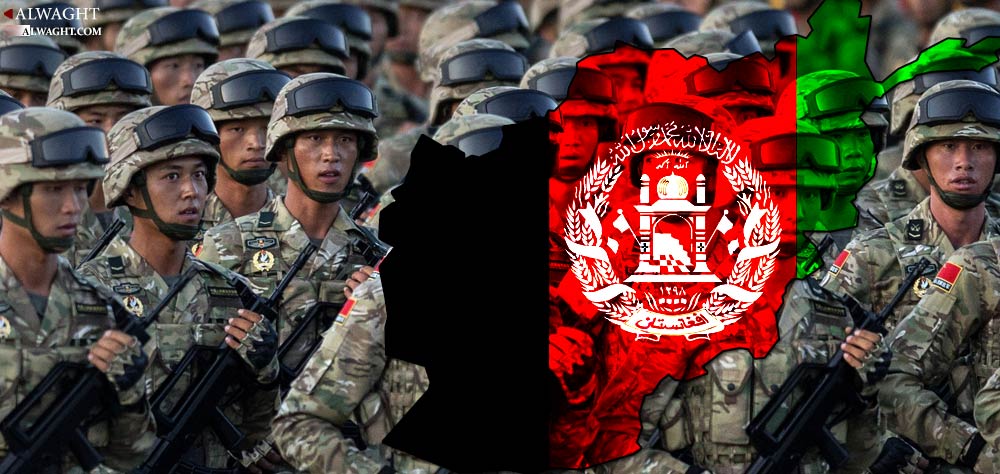Alwaght- Afghanistan developments are of resounding significance for China as Afghanistan shares borders with the autonomous Chinese province of Xinjiang, the most sensitive province for the Beijing leaders. China has reportedly increased more than ever its activity inside Afghanistan as some foreign forces withdrew from Afghanistan in 2016.
ISIS terrorist group started to emerge in Afghanistan. Knowing that the terrorist organization has intentions to found an Islamic caliphate, the Beijing leaders began to raise extreme worries about its rise in the neighboring Afghanistan. The Chinese officials in past few years tried hard to play a bigger role in Afghanistan security as the American and NATO forces said they planned to exit the war-torn country in 2016. As part of efforts for deeper influence in the Afghanistan developments, China hosted negotiations between Afghan and Pakistani delegations, as it at the same time invited the officials of the Qatar-based political office of Taliban for talks with the Chinese intelligence officials.
After long years of absence in Afghanistan developments, since 2016 Beijing upgraded its ties with Kabul to a strategic level, struggling to secure closer relations with its neighbor to contain possible crisis in the future.
For now, the security issues matter more than the economic and trade ties with Kabul for Beijing. But the Chinese leaders try to fund and run Afghanistan's infrastructures projects in a bid to prepare the ground for boosting mutual relations. Still another initiative to which China can resort is calling on the Shanghai Cooperation Organization– a bloc in which Kabul stands as an observer state– to bolster its military and security supports for Afghanistan.
Recently, news reports emerged suggesting that some Chinese armored vehicles arrived in Afghanistan for patrols, something totally denied by both the Chinese and Afghan officials. But it should not be out of expectation that China decides on a military presence in Afghanistan to preserve its own territories' security as some separatist Islamist groups in Xinjiang began moves in the northwestern Chinese province.
At the time being, two secessionist groups of East Turkestan Islamic Movement and World Uyghor Congress are active in Xinjiang province. The East Turkestan Islamic Movement even expanded its areas of activity and influence after collapse of the Soviet Union when it established relations with the Central Asian fundamentalist groups as well as Taliban and al-Qaeda in Afghanistan. The same cooperation is expectable again but this time with ISIS.
Xinjiang is significant for China because it is neighbor to countries such as Afghanistan, Pakistan, India, Tajikistan, Kyrgyzstan, Kazakhstan, Mongolia, and Russia, and is home to rich natural resources such as oil and gas. Furthermore, separation of this Muslim-inhabited province will shatter the Chinese unity and sovereignty.
The US has garbed this opportunity to use it against its major economic rival, that is china. Engaging China in terror-related issues, separatism, and security concerns can distract the focus and energy of the biggest US economic rival.
To tackle this issue, China has begun to enhance security on its northwestern borders. The analysts suggest that very likely Beijing has coordinated with Kabul on the security-providing measures. A set of problems including lack of funding to pay salaries and provide military training and equipment make it difficult for the Afghan army to secure the borders. Afghanistan army’s inability is even deteriorated by a vast area of the country that needs anti-terror coverage.
Afghanistan army and the police forces at best are only able to protect the capital Kabul and a series of other key cities from Taliban threats once the NATO forces fully exit and American troops numbers are cut. Taliban, in addition, due to financial problems that afghan army and police forces are dealing with, Taliban, al-Qaeda, and ISIS may bribe them into cooperation with terrorists.
So it is likely that China has enlarged its role on the northwestern Afghanistan borders following some accords with Kabul government, as Afghanistan knows that the Chinese military presence will make Beijing shoulder part of duty to preserve security and prevent further Taliban and ISIS infiltration across the country.



























